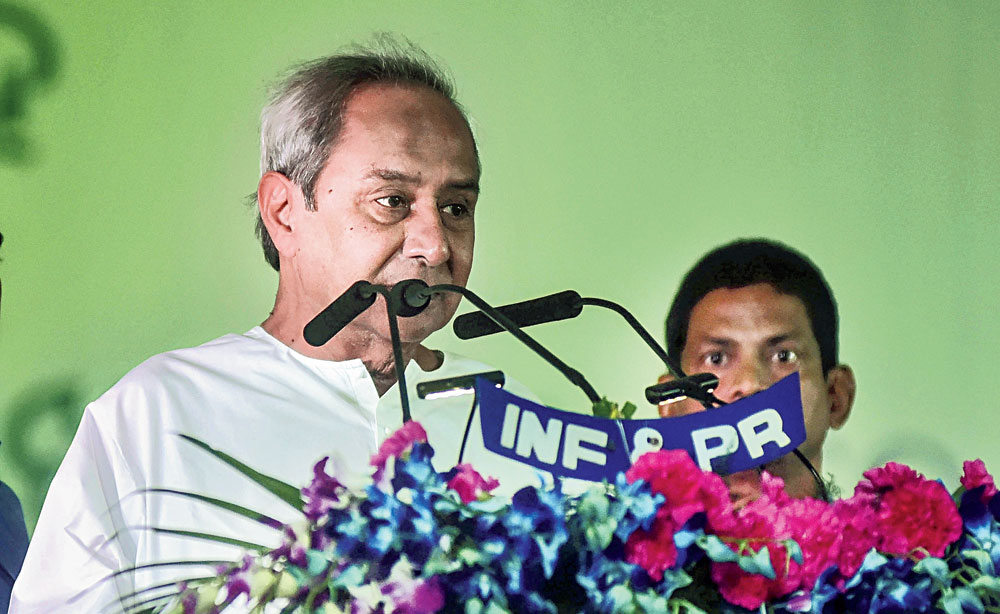For a Malayali, or some Malayalis, the best place to be in after May 23 and before May 30 would be the capital of Odisha.
No other place in India would have been as familiar, or reassuring, as Bhubaneswar for someone hailing from Kerala on Wednesday morning when Naveen Patnaik took oath as chief minister for a record-levelling fifth time.
If Kerala remains the only state where no candidate of the BJP or its allies has won a single seat this election, Odisha has found itself among a handful that have weathered the Narendra Modi avalanche, virtually displacing Bengal as the political cousin of the small contrarian holdout down south.
Generations of Malayalis have been brought up on hand-me-down tales, narrated by an uncle, a sister, father or a teacher, on how French leave was taken and trains were switched and third-class compartments were commandeered to cross the Kerala border on the morning of April 5, 1957.
That was the day what has come to be known as the “world’s first democratically elected communist government” took oath in Kerala. (Purists would point out that the feat had been achieved four years earlier in British Guiana but 1957 remains a milestone in communist lore. The followers of the fashionable sport of Nehru-baiting will point out that it was he who toppled that government.)
To be sure, the occasion in Bhubaneswar on Wednesday was not half as electric or dramatic as the retold tales associated with April 5, 1957, when the E.M.S. Namboodiripad government took oath.
Perhaps that is the point. The Bhubaneswar event was shorn of drama, hyperbole and triumphalism — a rare occurrence in contemporary India, especially on the eve of the formalisation of the second, and even more spectacular than the first, conquest by Modi.
Patnaik, whose temperament makes others speak a lot about how little he speaks, granted his supporters the concession of holding the ceremony for the first time on an exhibition ground that resembled a cavernous hangar.
Inside, the atmosphere was anything but forbidding. For a Malayali arriving in Bhubaneswar from Calcutta, where the so-called secular citadel appeared to be cracking and one-time prayer of the devout was metamorphosing into a raucous taunt, it was like stepping into a lost world.
The reporter’s notes read: air of absolute informality, no regimentation, no frightening clockwork precision, mic testing, hello, hello, you are sitting in MLAs’ row, no problem.
Then the ululation swept in, like a breeze, not like a raging wave. Its wellspring is at the back, an expression of appreciation and gratitude from women’s self-help groups for the leader who had fielded many women this election.
On the dais is Tukuni Sahu, who has been made a cabinet minister. It was not a cakewalk for her. Her husband had been murdered a few years ago. In this election, she had faced tough questions from voters.
Patnaik had not arrived yet. A barely perceptible rustle was clocked in the front row, where a gaggle of industrialists stood out in their suits (most others were in shirtsleeves, a smarter mid-summer choice).
The most powerful bureaucrat in the state, who enjoys the confidence of Patnaik, is doing the rounds. His demeanour and pleasing personality do not do justice to his formidable reputation. Introductions over, the movers and shakers in jackets resume their chatter.
Some members of the official band have taken off their caps in the heat. For the uninitiated among the audience, it throws up a moment of tension. Will they go off-key?
Then a minister-in-waiting on the dais nudges his neighbour. That’s it. Patnaik is on stage.
Miraculously, the band is already on its feet and renders the national anthem without missing a beat. It is a powerful moment; the informality has vanished. Row after row of the elected and the electors are standing at attention. Point to note: you don’t need a cinema hall and notification to respect your country.
Patnaik is proper to a fault but it is hard to say whether a smile crosses his face. Equanimity is his calling card. Evidently, it runs in the family or part of the family. The giant screens show the first row, where Patnaik’s sibling Prem Patnaik is giving his brother tough competition in playing poker face, at least when the camera zooms in on his. But next to him, their sister Gita Mehta is clapping. Eventually, so does the brother on the dais when the ministers start taking the oath.
The event ends as it had begun, with the admirable rendition of the anthem by the band. In between, 20 ministers have taken the oath, most of them devoid of the carefully cultivated image of cult leaders. No colourful shawls, no eerily perfect coiffure and no contrived posture.
That’s the point: it was remarkable because no deliberate attempt was made to make it remarkable. Nothing scores like authenticity.
Between the milestone moments of April 5, 1957, and May 30, 2019, that is a reassuring, if not unremarkable, footnote.











